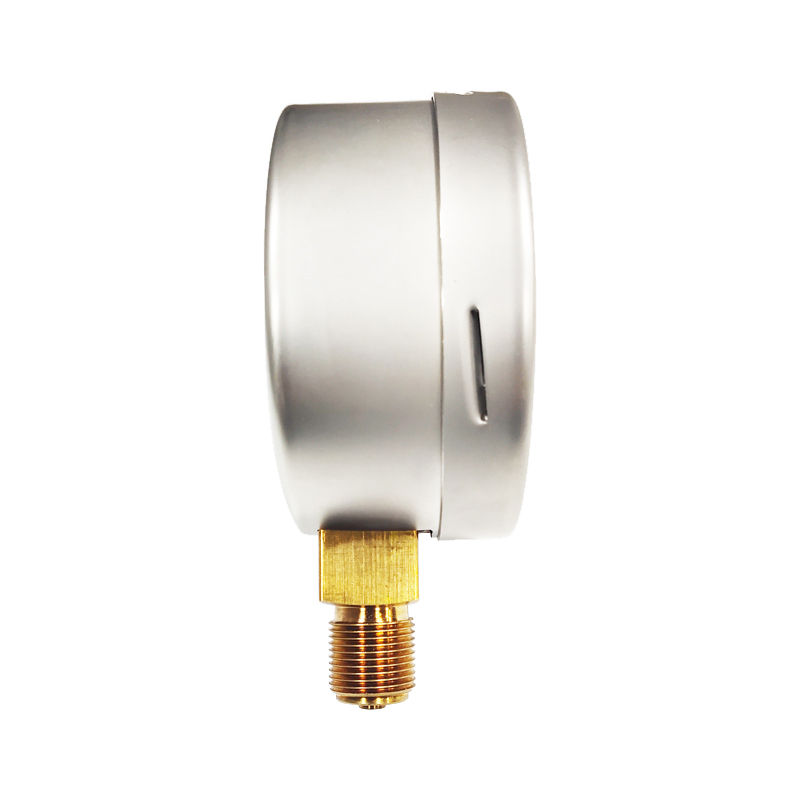
Nov . 18, 2024 17:52 Back to list
vacuum differential pressure gauge products
Understanding Vacuum Differential Pressure Gauge Products
In industrial applications, precise measurement of pressure is crucial, especially in processes involving vacuums and differential pressures. Vacuum differential pressure gauges are specialized instruments designed to measure the difference between atmospheric pressure and the pressure within a vacuum system. These devices play a vital role in ensuring efficient operation and safety in various sectors, including manufacturing, pharmaceuticals, and environmental monitoring.
What is a Vacuum Differential Pressure Gauge?
A vacuum differential pressure gauge is a device that measures the difference between two pressure levels, usually one of which is a vacuum. The primary purpose of this gauge is to monitor conditions in systems that operate under lower-than-atmospheric pressures. Unlike standard gauges that measure absolute pressure, vacuum differential gauges provide a relative measure, allowing operators to understand the efficiency and status of their vacuum systems.
How Does it Work?
At its core, a vacuum differential pressure gauge operates on the principle of pressure differentials. It typically comprises two inlet ports one connected to the process where the pressure needs to be measured and the other linked to a reference pressure, often atmospheric pressure. The gauge measures the difference between these two inputs, displaying the value on a calibrated scale or digital readout.
The internal mechanism can vary between different types of gauges, which may include Bourdon tubes, diaphragm sensors, or capacitive sensors. Each type has its advantages based on the application it is designed for. Digital gauges, for instance, offer enhanced accuracy and the ability to log data, while mechanical gauges provide simplicity and reliability in rugged environments.
Applications of Vacuum Differential Pressure Gauges
1. Manufacturing Processes In industries such as food processing and pharmaceuticals, maintaining vacuum conditions is crucial for product quality. Vacuum differential pressure gauges help ensure that the vacuum systems remain within acceptable limits, preventing contamination and ensuring safety.
2. Environmental Monitoring These gauges are also used in environmental applications to monitor air pollution control systems. They help measure the performance of scrubbers and filters, ensuring that industrial emissions are kept within regulated limits.
vacuum differential pressure gauge products

3. HVAC Systems In the heating, ventilation, and air conditioning industry, vacuum differential pressure gauges are employed to manage airflow in ducts. By monitoring pressure differentials, systems can optimize efficiency and performance.
4. Laboratories Research laboratories utilize these gauges in various setups that require precise vacuum control, such as in vacuum chambers for material testing or chemical reactions.
Choosing the Right Gauge
When selecting a vacuum differential pressure gauge, several factors need to be considered
- Pressure Range Ensure that the gauge can handle the expected vacuum levels of your system. Different models are designed for different ranges of operation.
- Accuracy and Sensitivity Depending on the critical nature of your application, you may need a gauge with higher accuracy and sensitivity.
- Material Compatibility The materials used in the gauge should be compatible with the substances being measured to prevent corrosion and ensure longevity.
- Digital vs. Analog Decide whether a digital gauge, offering advanced features and data logging, or a traditional analog gauge, known for durability, better suits your needs.
Conclusion
Vacuum differential pressure gauges are indispensable tools across multiple industries, enabling precise measurement and monitoring of vacuum conditions. Their ability to provide critical data ensures that processes are efficient, safe, and compliant with regulatory requirements. As technology advances, the accuracy and features of these gauges continue to improve, making them even more valuable in today’s industrial landscape. Selecting the right vacuum differential pressure gauge based on specific application needs not only enhances operational efficiency but also bolsters safety and reliability in various processes.
-
High-Precision Mass Diaphragm Pressure Gauge - Reliable & Durable Solutions
NewsJun.10,2025
-
Explain Diaphragm Pressure Gauge Expert Guide, Top Manufacturers & Quotes
NewsJun.10,2025
-
Affordable Differential Pressure Gauge Prices in China Top Manufacturers
NewsJun.10,2025
-
Reliable Water Fire Extinguisher Pressure Gauges for Safety
NewsJun.10,2025
-
Durable Diaphragm Protection Pressure Gauges Get Quote
NewsJun.09,2025
-
WIKA Differential Pressure Gauge with Switch Reliable Monitoring & Control
NewsJun.09,2025
